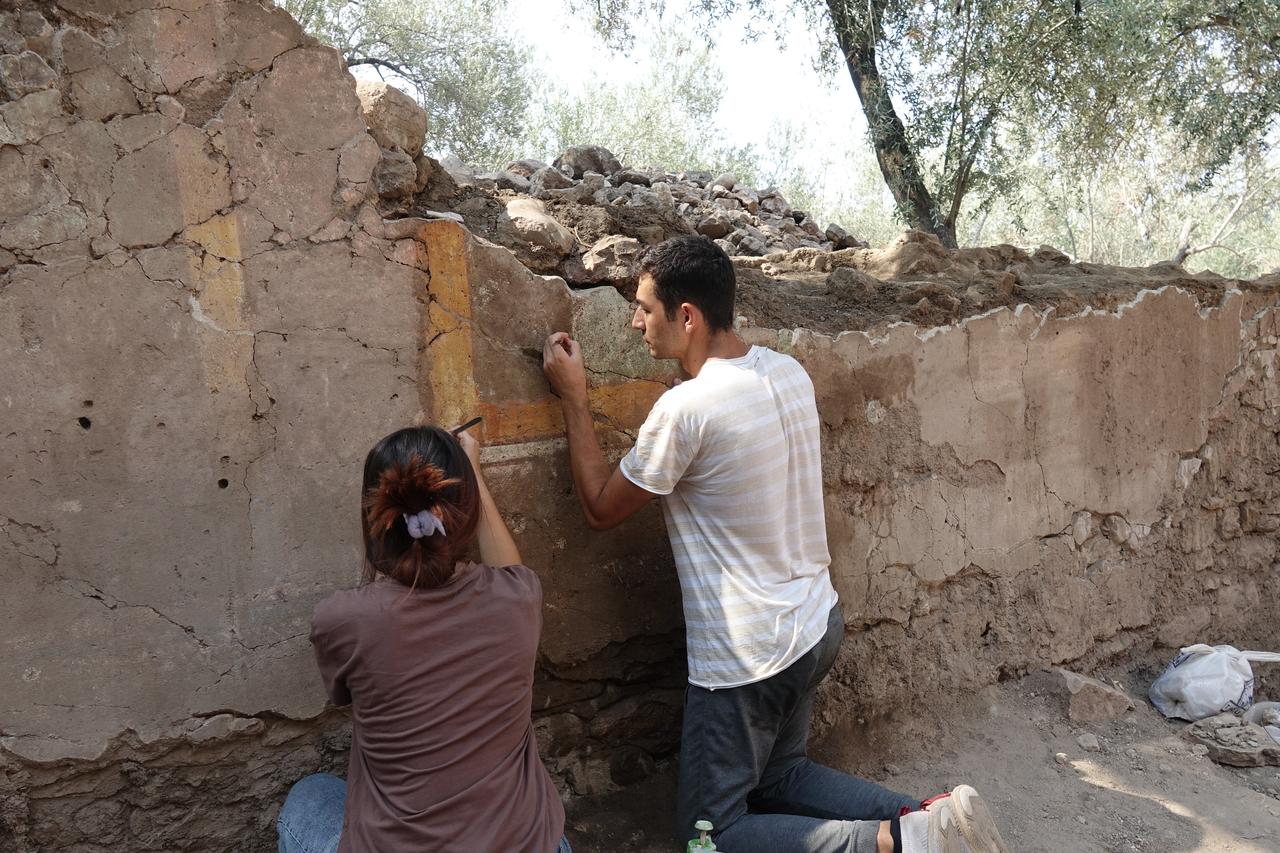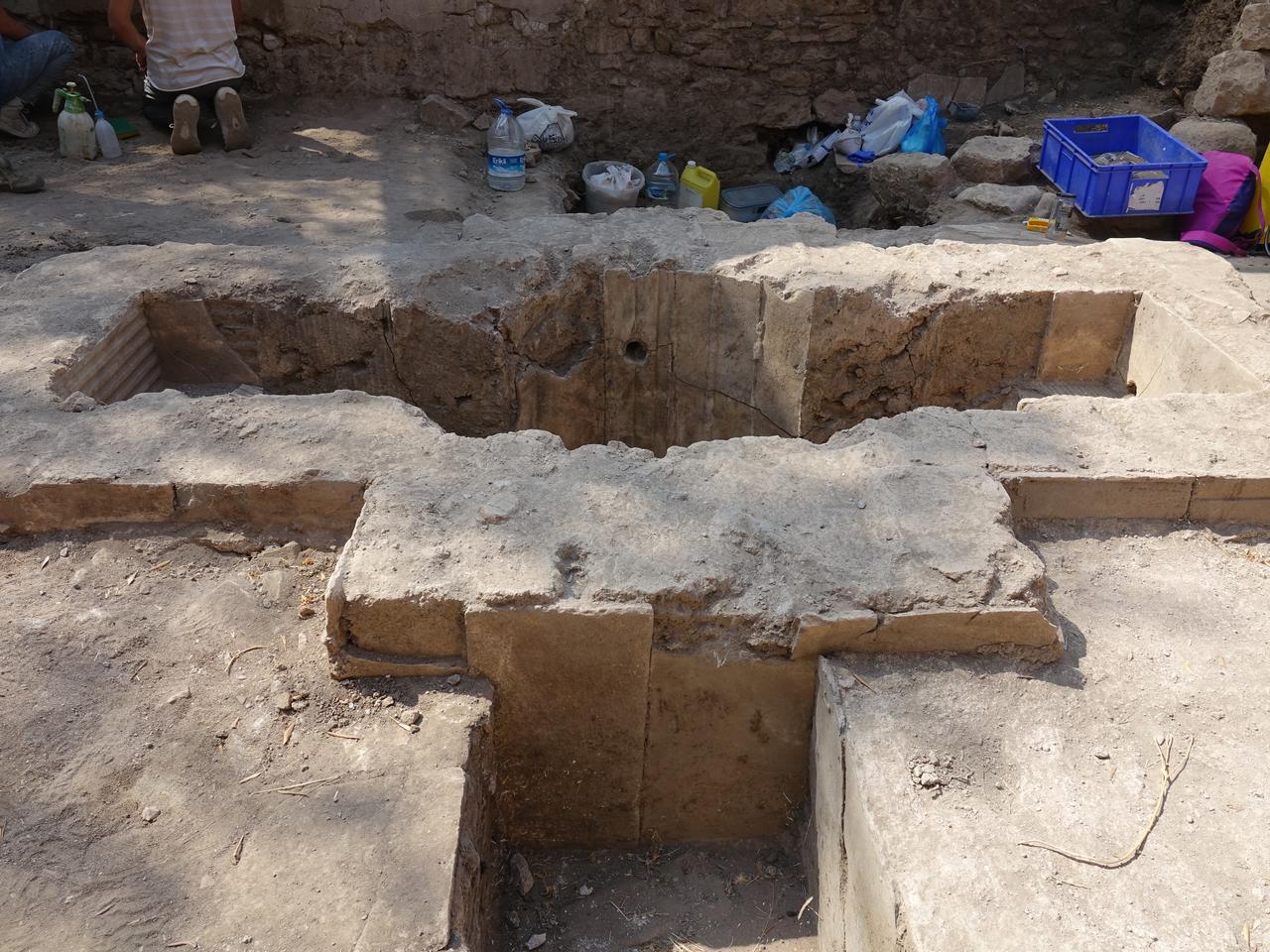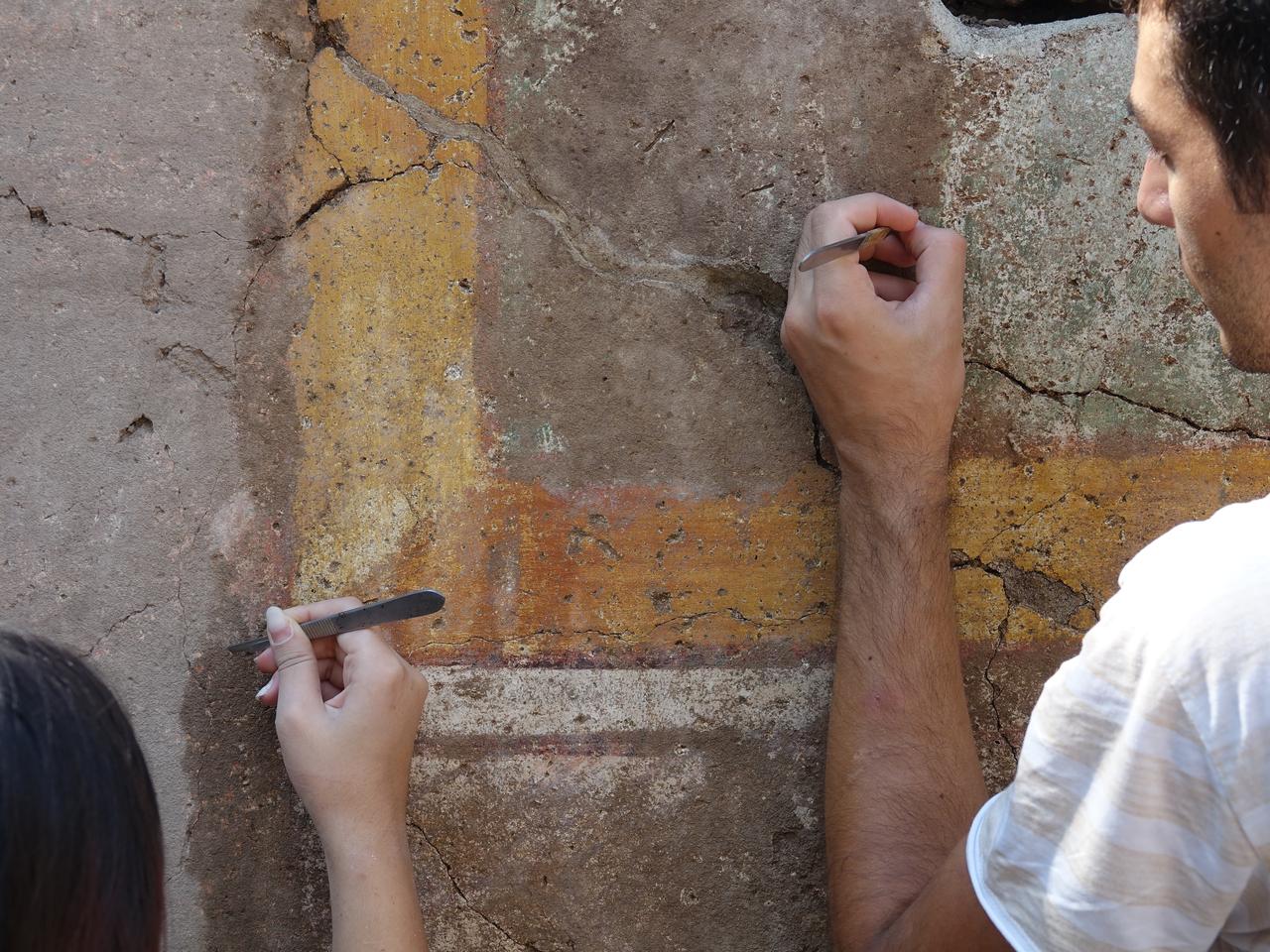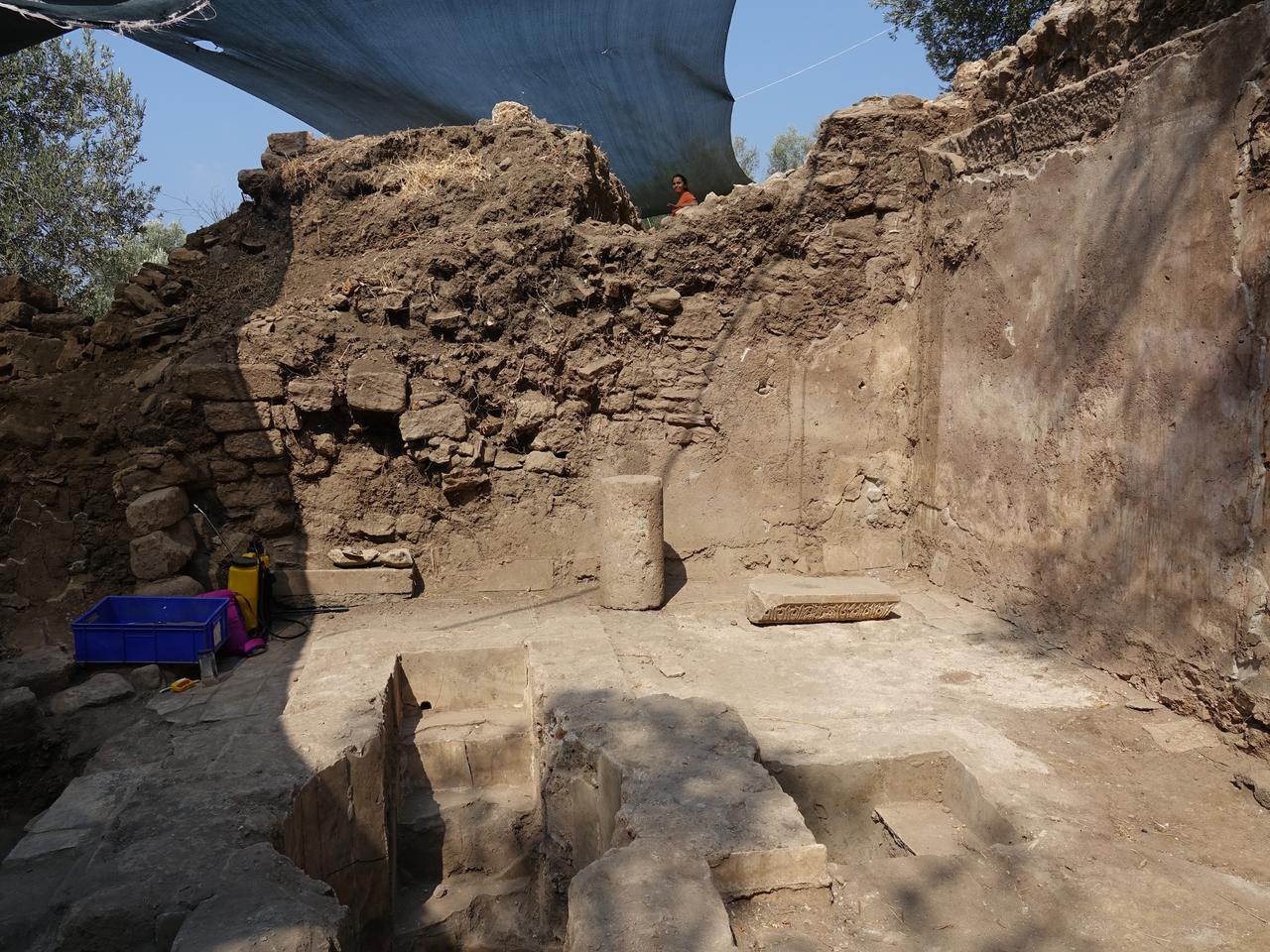
Archaeologists working at the ancient city of Antandros in Balikesir’s Edremit district have uncovered a Roman villa room that was later converted into a Christian baptistery, a discovery they say will shed light on the history of Christianity in the region.
The long-running excavation, which began in 2001, identified the structure in a new work area opened in 2024.

Ege University archaeologist and Antandros excavation head Professor Gurcan Polat said the newly identified room measures about 7.20 meters by 5.90 meters, with a marble floor and walls painted in two layers of fresco (a wall-painting technique on wet plaster).
He noted that a central baptismal pool approximately 1 meter in diameter was built with three steps descending from both the east and west.
According to Polat, “It was initially designed as a room in a Roman villa but was later converted into a baptistery after Christianity became the official religion.”
A baptistery is a dedicated space for Christian baptism.

Polat reported that the wall paintings were refreshed in the middle of the 5th century and remain strikingly colorful, featuring panel compositions and vegetal motifs.
The team is carefully removing natural lime deposits to reveal the designs more clearly.
To understand how the space functioned within its broader complex, archaeologists have opened new trenches to the east and west.
Polat said the team has identified niches and “a Christian monogram” incised into a wall’s mortar and is working to document the room’s full plan.

Polat explained that, while earlier work was limited in some places due to private property, the 2024 season enabled excavations in a new sector.
He added that another villa on the slope, roughly 30 meters southeast of a previously known Roman villa, is thought to date to around 300 A.D.
Polat thanked the Ministry of Culture and Tourism's "Heritage for the Future" program, Balikesir Metropolitan Municipality, and Edremit Municipality for their financial support this year.